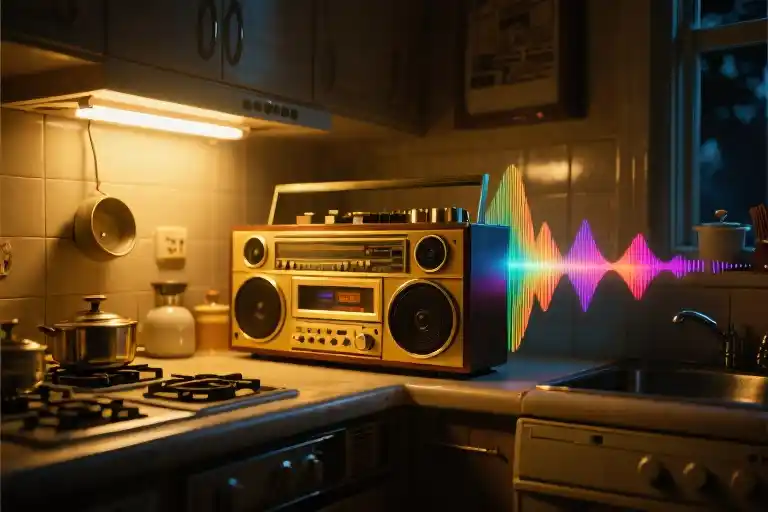The aroma of steamed fish and stir-fried vegetables fills the air as I sit at the crowded holiday table. Between bites of glutinous rice cake, my aunt leans forward with that familiar glint in her eyes. “So when are you bringing someone special home?” she asks, as if inquiring about tomorrow’s weather. The chopsticks in my hand pause mid-air. I’ve prepared for this moment – the annual interrogation disguised as casual conversation – yet my throat still tightens.
Across from me, my cousin’s new boyfriend dutifully peels shrimp for her, their matching red sweaters screaming coupledom. My phone buzzes with a dating app notification I forgot to disable. Even the television commercial break features diamond rings and romantic getaways. It’s not just a question; it’s a cultural bombardment.
“I’m focusing on myself right now,” I finally respond, forcing a smile that doesn’t reach my eyes. The table erupts in protests – “You’re not getting younger!” “Don’t be so picky!” Their words hang like mistletoe I never asked for.
This scene plays out in countless variations – office parties where colleagues assume singles need fixing up, social media algorithms flooding feeds with #CoupleGoals, even well-meaning friends whispering “You’ll change your mind.” What begins as personal preference becomes a daily defense of life choices.
Here’s the uncomfortable truth they don’t acknowledge: voluntary singlehood isn’t about lacking something, but honoring what’s already there. That empty chair beside me? It holds space for self-discovery they can’t quantify. My silent phone represents peace they might never understand.
We’ll explore this tension together – from the emotional defense mechanisms that protect us, to the social pressure to date that weighs heavier than any wedding invitation. You’ll recognize pieces of your story in these pages, whether you’re healing from heartbreak or simply embracing solo living. Most importantly, we’ll dismantle the myth that love is a universal to-do list item rather than what it truly is: a choice, not a commandment.
Because sometimes the bravest word isn’t “forever” – it’s “enough.”
The Unapologetic “I Don’t Wanna”
The last text message still glows in my memory – three polite sentences ending with “it’s not you” in that particular shade of emotional cowardice. I remember sitting cross-legged on my apartment floor, phone clutched in both hands like it might disintegrate, realizing this was the moment my heart would either break or turn to stone. It chose some strange combination of both.
When Vulnerability Becomes a Liability
There’s something violently intimate about loving with your whole chest. I did that once – the kind of love where you wake up early just to see their morning text, where you memorize their coffee order before your own social security number. All my cards on the table, face up, vulnerable. The modern dating world calls this “moving too fast” while simultaneously demanding we “put ourselves out there.”
Reader submissions echo this dissonance:
- “After my divorce, dating apps felt like emotional Russian roulette. Why would I keep pulling the trigger?” – Jamie, 29
- “Every first date starts with me calculating how much heartbreak I can afford this month. The answer is usually zero.” – Dev, 33
The Aftermath of Emotional Risk-Taking
The peculiar pain isn’t just in the rejection itself, but in the demolition of your own carefully rebuilt hope. That carefully curated playlist you made “for when we drive up the coast someday” now mocks you during your commute. The inside jokes fossilize into awkward relics. The vulnerability you offered like a gift gets returned like an unwanted sweater, slightly stretched out of shape.
What they don’t tell you about emotional defense mechanisms is how quietly they construct themselves. One day you’re crying over rom-coms, the next you’re genuinely perplexed why anyone would willingly sign up for this vulnerability experiment called love. The shift happens in microscopic increments:
- Deleting dating apps “just for a break” that becomes permanent
- Developing an encyclopedic knowledge of why relationships fail
- That faint eye-roll when friends gush about new relationships
Society’s Relentless Love Narrative
Here’s where it gets complicated – my brain understands that not all love ends in wreckage. But my nervous system? That primitive alarm system now associates romantic potential with impending emotional danger. Meanwhile, the world keeps insisting I should want this:
- Rom-coms framing singlehood as a temporary affliction
- Wedding industry ads implying marriage is life’s ultimate achievement
- Well-meaning aunts asking “Don’t you get lonely?” as if solitude were a disease
Which brings us to the quiet rebellion of saying “I don’t wanna” in a world that treats romantic love as oxygen – necessary, fundamental, non-negotiable. There’s power in that refusal, though it’s often mistaken for bitterness rather than what it really is: the hard-won wisdom of someone who’s done their emotional cost-benefit analysis.
So why does choosing self-protection over romantic exploration feel so transgressive? The answer lies in the uncomfortable collision between personal history and societal expectation – a story we’ll unpack in the next chapter.
Love as a Social Obligation
That diamond commercial you fast-forward through? The one where a beaming woman gasps at a velvet box while violins swell? It’s not just selling jewelry—it’s selling the idea that love must be packaged, priced, and performed. Consumer culture and patriarchal norms have perfected this alchemy: transforming human connection into social obligation.
The Valentine’s Industrial Complex
Consider this: The average American spends $175 on Valentine’s Day (National Retail Federation data), while single people report feeling 23% more anxious during February (APA survey). Coincidence? Hardly. From chocolate heart displays in January to “engagement season” Instagram posts in December, we’re conditioned to associate love with transactions.
“A Diamond Is Forever”—De Beers’ legendary campaign didn’t just boost gem sales. It cemented the notion that commitment requires commodification. Today, dating apps monetize loneliness, wedding expos hawk $10,000 cakes, and TikTok trends equate romantic gestures with luxury gifts.
Family Pressures: When Love Feels Like Homework
Then there’s the cultural script drilled into us before we could talk:
- “When will you bring someone home?” (Age 22)
- “Your cousin already has two kids!” (Age 28)
- “Don’t you want me to have grandchildren?” (Age 32)
These aren’t harmless questions—they’re emotional invoices. As writer Roxane Gay observes: “Women are taught to view marriage as both an accomplishment and a necessity.” The underlying message? Your worth depreciates like an unworn wedding dress.
The Hidden Curriculum of Romance
These pressures seep into our subconscious through:
- Media Narratives: 93% of Hollywood rom-coms end with coupling (USC Annenberg study), implying happiness requires partnership.
- Language Traps: Terms like “spinster” or “confirmed bachelor” pathologize singlehood.
- Architecture of Daily Life: Restaurant tables for two, couples’ gym memberships, even tax benefits for married filers.
Real Talk Moment: Next time someone asks “Why are you still single?”, try reframing: “Why does my relationship status make you uncomfortable?”
How These Expectations Shape Us
The psychological toll manifests as:
- Dating Fatigue: Swiping becomes a chore, not a choice
- Self-Doubt: “Maybe I’m too broken for love” (spoiler: you’re not)
- Defensive Dating: Pursuing relationships to quiet critics, not fulfill desires
A 2022 Journal of Social Psychology study found that 68% of singles admitted staying in lackluster relationships solely to avoid stigma.
Rewriting the Script
Begin disentangling genuine desire from social programming with these prompts:
- Audit Your Influences: Unfollow accounts that trigger comparison
- Spot the Sales Pitch: Notice when “love” is being used to sell something
- Create Counter-Narratives: “My happiness isn’t a demographic category”
As the chapter transitions to psychological defenses, consider: When society treats love like oxygen—essential and omnipresent—how do we reclaim the right to say ‘I don’t wanna breathe’?
The Walls We Build Around Hearts
That moment when your phone lights up with a dating app notification, and your finger hovers over ‘delete’ instead of ‘open’—that’s your emotional defense system at work. Our brains are wired to protect us from repeating past pain, and when it comes to matters of the heart, these protections often manifest as invisible walls we don’t even realize we’re building.
Your Brain’s Pain Management System
Neurologists call this phenomenon ’emotional numbing’—the mind’s equivalent of applying anesthetic to a wounded area. After significant heartbreak, your brain literally restructures itself to avoid similar future trauma. MRI studies show decreased activity in the pleasure centers when those with emotional defense mechanisms view romantic stimuli, while threat detection areas light up like warning signals.
This explains why:
- Romantic movies suddenly feel cringeworthy instead of charming
- Your friends’ engagement announcements trigger discomfort rather than joy
- The thought of swiping right induces actual physical fatigue
Self-check: When you imagine going on a date, do you feel:
- Mild curiosity (healthy openness)
- Neutral disinterest (possible numbing)
- Physical tension or dread (strong defense activation)
Defense Mechanisms: Shields or Prisons?
Psychology identifies several common protective patterns:
The Intellectualizer
“I’ve analyzed the statistical probability of successful relationships…”
Replaces feelings with data and logic to maintain distance.
The Minimizer
“It was just a short fling, no big deal.”
Downplays past relationships to reduce their emotional impact.
The Avoidant
“Too busy with work for dating right now.”
Keeps schedules packed to eliminate romantic opportunities.
These strategies aren’t inherently bad—they’re psychological Band-Aids that allow healing. Problems arise when temporary protections become permanent barricades. Like a cast left on too long, what initially supports can eventually weaken.
The Door That Still Opens
Here’s the hopeful truth neuroscientists have discovered: emotional defenses are gates, not sealed walls. That means:
- They’re adjustable – With conscious effort, we can loosen their settings
- They serve you – Your defenses emerged for good reasons
- They need maintenance – Outdated protections require updating
Try this simple gate adjustment exercise:
- Identify one small romantic-adjacent activity that feels safe but slightly challenging (e.g., watching a rom-com trailer)
- Notice your physical reactions without judgment (racing heart? numbness?)
- Afterwards, journal 1 sentence about the experience
The goal isn’t to dismantle your walls overnight, but to remember you hold the keys. As psychologist Dr. Sarah Thompson notes: “Defenses become problematic only when we forget we installed them.”
This isn’t about pressuring yourself to date—it’s about reclaiming choice. Because the healthiest protection isn’t permanent lockdown; it’s a security system you control.
Rewriting Your Own Rules
That moment when your aunt leans across the holiday dinner table with that familiar glint in her eye—”So when are you bringing someone special home?”—can feel like stepping into emotional quicksand. For those of us who’ve consciously stepped away from romantic pursuits, these interactions aren’t just awkward small talk; they’re micro-invalidations of our carefully considered life choices.
Scripts for Deflecting Pressure
Having pre-prepared responses transforms these encounters from draining to manageable. Consider these approaches:
The Humorous Redirect
“Actually, I’m in a committed relationship with my career right now—we’re even thinking of adopting a plant baby together.”
This works particularly well in professional settings where ambition is valued.
The Boundary-Setting Statement
“I appreciate your concern, but my relationship status isn’t up for discussion today.”
Pair this with immediately changing the subject to their recent vacation or a neutral topic.
The Thought-Provoking Question
“Why do we assume everyone needs romantic love to be complete?”
Best used with people who might genuinely reflect on societal norms.
Daily Affirmations for Emotional Independence
Rebuilding self-worth after heartbreak requires conscious practice. Try this morning routine:
- Mirror Work: Stand before your reflection and declare:
“My value exists independently of any relationship status. I am enough as I am.” - Gratitude Inventory: List three non-romantic relationships that enrich your life (e.g., your sister’s daily check-ins, your book club friends).
- Accomplishment Acknowledgment: Recall one personal achievement unrelated to dating (career milestone, fitness goal, creative project).
Research shows it takes approximately 66 days to rewire thought patterns—commit to this practice for at least that duration to solidify new neural pathways regarding self-worth.
When Defenses Become Prisons
While emotional protection serves us initially, we must periodically check if our boundaries have become barriers. Ask yourself:
- Am I avoiding all vulnerability, even in friendships?
- Do I automatically dismiss any positive relationship examples?
- Has my skepticism hardened into cynicism?
These indicators suggest your healthy defense mechanisms might be morphing into limiting beliefs. The goal isn’t to dismantle all walls, but to install doors you can consciously open when you choose.
The Freedom in Choosing Differently
What if we measured personal growth not by our ability to couple up, but by our capacity to design lives that feel authentically ours? The window view beyond romance’s doorway reveals:
- Platonic Partnerships: That friend who knows your coffee order and emotional tells better than any ex ever did
- Creative Outlets: The novel only you could write, the art only you can create with your undistracted focus
- Community Ties: The neighborhood dog-walking group that’s become your unexpected support network
As psychologist Dr. Sarah Jones notes: “Human connection exists on a spectrum far wider than our cultural narratives acknowledge. Validating non-romantic bonds is the next frontier of emotional literacy.”
This isn’t about rejecting love forever—it’s about reclaiming the right to say “not now” or “not this way” without apology. Because sometimes the most radical act of self-love is simply refusing to perform emotional labor you didn’t volunteer for.
Beyond Romance: Other Ways to Connect
When society equates emotional fulfillment exclusively with romantic love, it overlooks the rich tapestry of human connection. For those choosing voluntary singlehood or recovering from heartbreak, alternative relationships can provide profound emotional nourishment without the vulnerability of traditional romance.
The Platonic Soulmate
Sarah and Emma exchanged silver promise rings during their tenth anniversary as best friends. “People assume romantic partners are the only ones worthy of lifelong commitment,” Sarah explains. “Our friendship has survived cross-country moves, career changes, and bad breakups. Why shouldn’t we celebrate that?” Their ritual—complete with handwritten vows about showing up for each other—challenges the notion that deep emotional bonds require sexual intimacy.
Research from the University of Oxford confirms what many intuitively know: strong friendships activate the same neural pathways as romantic love. The key difference? These relationships often lack the societal scripts that complicate dating—no arbitrary timelines, no expectation to merge finances, no pressure to conform to relationship escalator norms.
Four-Legged Therapists
Animal shelters report increased adoption rates among millennials and Gen Z, with many citing emotional support as their primary motivation. “Mr. Whiskers greets me at the door every night,” says Diego, who joined a local cat rescue community after his divorce. “The shelter volunteers became my chosen family—people who understand loving without conditions.”
Pets provide tangible mental health benefits:
- Oxytocin release comparable to parent-child bonding
- Routine stability that counters emotional numbness
- Nonverbal comfort for those struggling with vulnerability
Community as Antidote
Book clubs, hiking groups, and volunteer organizations often fulfill needs traditionally assigned to romantic partners:
| Romantic Expectation | Alternative Fulfillment |
|---|---|
| Emotional validation | Support group sharing circles |
| Physical touch | Dance class or massage exchange |
| Shared purpose | Environmental clean-up crew |
Los Angeles-based therapist Dr. Naomi Chen observes: “Many clients discover their most secure attachments through recurring interactions—the barista who remembers their order, the yoga instructor who notices their progress. These micro-connections rebuild trust in human reliability.”
Your Emotional Nutrition Plan
Consider these reflection prompts:
- Which non-romantic relationship makes you feel truly seen?
- When did a stranger’s kindness unexpectedly uplift you?
- What activity creates that “warm glow” of belonging?
As the boundaries of meaningful connection expand, perhaps we’ll stop asking “Why aren’t you dating?” and start wondering “Who or what makes your heart feel safe today?”
Love Is an Option, Not a Mandate
The last sip of coffee has gone cold in your mug—much like the dating prospects everyone keeps insisting you should explore. Outside your window, couples stroll hand-in-hand through the park, their laughter carried by the spring breeze. Your phone buzzes with yet another wedding invitation. And for the hundredth time this month, you whisper to yourself: “I don’t wanna.”
The Liberation in Choosing Differently
Society operates on autopilot when it comes to romantic expectations. From childhood fairytales to algorithmic dating app prompts, we’re conditioned to view love as a finish line rather than one of many possible paths. But here’s the radical truth: emotional fulfillment isn’t monogamous with romance.
Consider these alternative sources of connection that readers have shared:
- The Book Club That Became a Support System
“We started meeting weekly to discuss novels, and ended up creating a safety net for life’s storms—job losses, health scares, breakups. These women know my soul in ways no romantic partner ever has.” — Jamie, 29 - The Canine Co-Pilot
“When people ask why I’m not dating, I show them videos of my dog ‘helping’ me work from home. That tail wag contains more genuine joy than any forced small talk on dating apps.” — Marcus, 33
Crafting Your Emotional Independence Manifesto
This isn’t about rejecting love—it’s about reclaiming agency. Try this exercise:
- Grab a notebook and write three headings:
- What I Actually Enjoy About Being Single (morning routines? spontaneous trips?)
- The Kind of Relationships I DO Want (deep friendships? creative collaborations?)
- Boundaries Worth Protecting (e.g., “I won’t justify my life choices at family gatherings”)
- Keep it visible—tuck it in your wallet or make it your phone lock screen
Your Turn: The Comments Section as a Safe Harbor
We’d love to hear your version of emotional independence. Maybe it’s:
- “My cat and my canvas paintings fulfill me more than swiping ever did”
- “I’m writing my master’s thesis on how medieval nuns found empowerment in singlehood”
- “After divorce, I discovered solo travel—here’s my favorite selfie from Iceland”
Final Thought: The most revolutionary love story might be the one you don’t force yourself to participate in. However your heart chooses to beat—whether alone, with friends, with pets, or eventually with a partner—that rhythm is valid.
“The right to say ‘no’ to love is the foundation for any authentic ‘yes.'”





